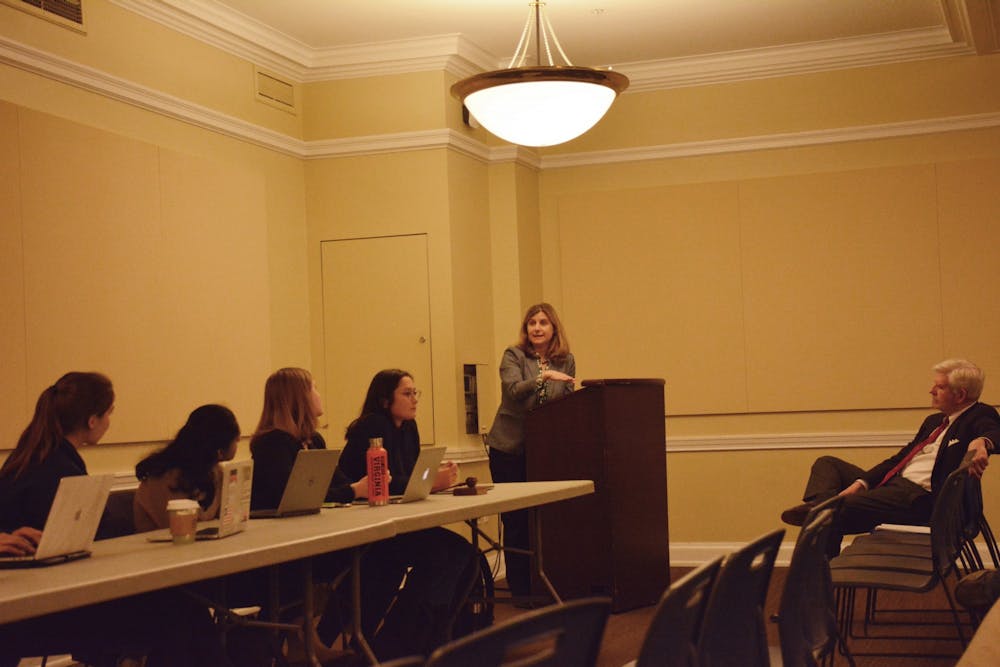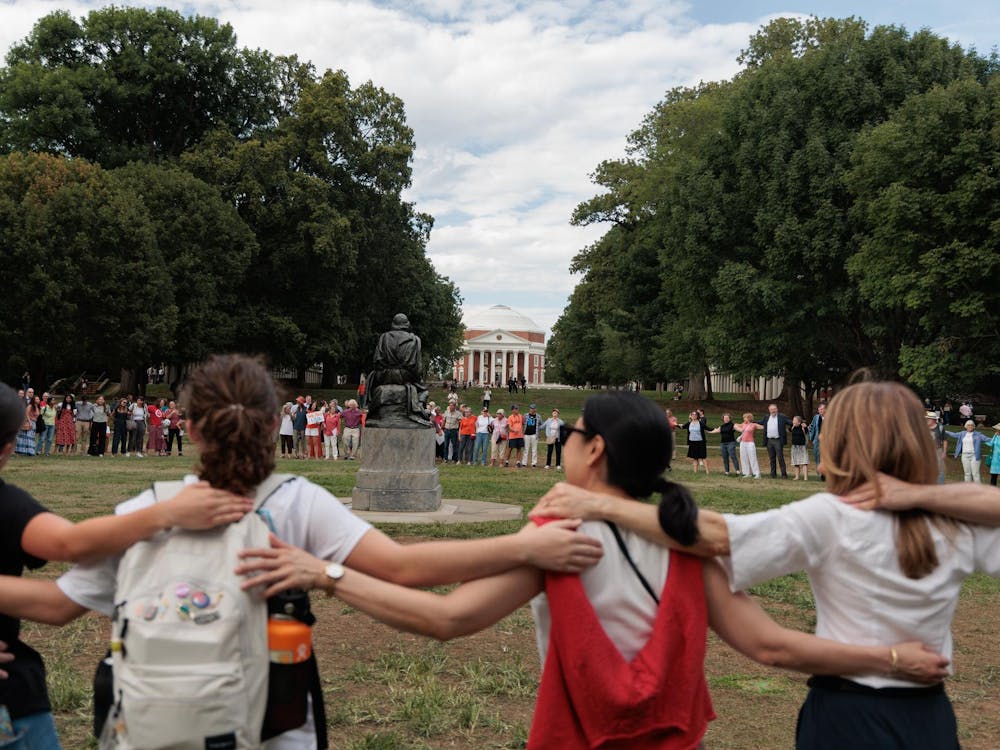University Provost Liz Magill joined Student Council representatives and around 40 students for a public discussion on the University’s “watch list” admissions practice as part of a question-and-answer forum held by Student Council Tuesday evening. However, many students expressed concern that their questions went unanswered and were unsatisfied with the outcome of the meeting.
The Cavalier Daily reported in September that the watch list, which refers to the University’s practice of marking “high-priority” applicants connected to donors, doubled in the most recent admissions cycle since it was first revealed in 2017 by The Washington Post. Following the article in September, the Student Council executive board released a statement expressing its views condemning this practice but ultimately failed to pass a resolution on the matter.
Student Council held its forum in an attempt to obtain more information surrounding the practice and to give members of the student body the chance to have their opinions heard.
Magill, the University’s executive vice president and provost, is responsible for the academic administration of all 11 schools, libraries, art museums, University centers and foreign study programs, as well as the University’s teaching and research activities. She began the forum by explaining new changes occurring within the University’s Office of Admission, announcing that the University is in the process of hiring a new vice provost for enrollment, who will work with the Office of Admission to help design the admissions and financial aid strategies to enroll students at the University.
Magill then continued on to explain the University’s admissions process in regards to the practice of affording some students an additional review.
“For about 20 years at least, the University of Virginia has had a practice of giving certain applicants, what we call, additional review,” Magill said. “Lots of other universities do this as well. This list of applicants often includes children of faculty or staff at the University, but they can also include applicants recommended by elected officials, members of the Board of Visitors and sometimes donors.”
This list of applicants who receive additional review can include donors, relatives of University faculty, children of alumni, ROTC candidates, applicants who have received top ratings from the art department, applicants under consideration to be Echols or Rodman scholars, first-generation students and twins who apply to the University together.
Magill emphasized that the idea there is a tangible “watch list” influencing the admission of certain privileged students is misleading.
According to 2019 admission statistics provided by Deputy University Spokesperson Wes Hester, 13 percent of applications from the total pool were waitlisted, while 43 percent of applicants from the watch list were waitlisted. Only eight students — seven percent of the watch list applicants — were offered admission, making the percentage of accepted watch list students only 0.08 percent of all total admission offers.
“I think this idea of the ‘list’ is a bit of a red herring in the sense that this process — where letters are written to the admissions office — is a fairly informal process,” Magill said. “There is an additional review that happens with applicants that's in a broader context of lots of additional reviews for many applicants, so I suppose the only benefit [of the watch list] is this additional review.”
Isabella Liu, Chair of the Representative Body, explained the understanding which was held by Student Council, of what the “watch list” consists of.
“In 2017, the Office of Advancement had maintained a single list that advancement officers wrote notes on, encouraging denials to be pushed to acceptances or waitlists to be pushed to acceptances — that is what is printed,” Liu said. “I think that's what we're all thinking about when we're asking about the watch list.”
Magill responded to Liu, maintaining her point that rather than there being a physical watch list, admissions is a more informal process.
“I do not believe, as the advancement person wrote, that they are maintaining any sort of list of the sort you just referred to,” Magill said. “I think the inputs to admissions come from lots of different places — calls, letters, a Dean calling the admissions office.”
One aspect of the “watch list” has to do with legacy students. As The Cavalier Daily previously reported, University Dean of Admissions Greg Roberts has explained that a small portion of admissions are based off of so called “institutional interest” and includes children whose parents attended the University.
Magill explained part of the mindset behind admitting legacy students.
“I'd be curious what people think about legacy students, that is, applicants whose parents went to the University of Virginia — which is a very large percentage, way beyond less than 1 percent of the pool [of those on the watch list],” Magill said. “And that, that is about intergenerational connections. You can say that these students, unlike the ROTC student or the first-generation student who is bringing something themselves, what [legacy students are] bringing is an intergenerational connection.”
In the discussion held after Magill’s question and answer forum, Ellie Brasacchio, Student Council president and a fourth-year College student, expressed distaste for the idea of an “intergenerational connection” being the reason to prioritize legacy students in admission.
“I personally believe that the intergenerational bond, and the idea of admitting legacy students, for that reason is not something that admissions should be prioritizing,” Brassachio said. “For first-generation students, lower-income students, we don't have the luxury, the privilege, of intergenerational ties to the University. And I don't think we should be prioritizing those privileged people over people like first generation students and minority students with limited time and limited resources.”
Ryan Alcorn, a second-year College student, also expressed disappointment with the lack of action being taken by the University and Student Council in regards to the “watch list.”
“As someone who's not on Student Council but is paying attention to this issue, it's very disappointing to see the deliberation but no action,” Alcorn said. “It would be inspiring to see something out there to condemn this practice because if any student is being accepted on a second look solely based on being well connected to someone … then that's something that you guys as leaders should be involved in stopping and condemning.”







